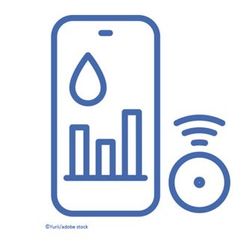Proactive Intervention: Strategies for Slowing Type 1 Diabetes Progression - Episode 1
Assessing the Burden of T1D
Panelists discuss how managing the clinical, financial, and quality-of-life burdens of type 1 diabetes (T1D) requires early intervention, proactive care strategies, and the use of treatments like teplizumab to improve patient outcomes and reduce long-term complications.
This Frontline Insights transcript was edited for clarity and length.
Javier Morales, MD: Good evening, and welcome to Patient Care Frontline Insights. Tonight, we’ll explore proactive intervention strategies for slowing type 1 diabetes progression. I am Dr. Javier Morales, Associate Clinical Professor of Medicine at the Donald and Barbara Zucker School of Medicine at Hofstra/Northwell. I’m honored to be joined by an esteemed panel of clinicians: Dr. Natalie Bellini, Assistant Clinical Professor of Medicine at Case Western Reserve University School of Medicine and Program Director of the Diabetes Technology, Diabetes and Metabolic Care Center at University Hospitals, Cleveland, Ohio. Dr. Abha Choudhary, Pediatric Endocrinologist at UT Southwestern Medical Center in Dallas, Texas. Dr. Aubrey Molgaard, Diabetes Management Specialist at CHI Health. Thank you for joining us this evening.
Objectives for the program are to:
- Highlight the core objectives of National Diabetes Month, emphasizing awareness and strategies to delay and manage type 1 diabetes through early intervention.
- Discuss the importance of screening for type 1 diabetes, including available tools, selection criteria, and the potential to delay disease progression through timely intervention.
- Increase awareness of type 1 diabetes staging and its role in early intervention, specifically with teplizumab, to delay disease progression.
- Navigate the treatment process for teplizumab, including securing approval, establishing referral networks, and managing the 14-day infusion process.
- Equip healthcare providers with strategies to optimize patient outcomes, improve quality of life, and reduce complications such as diabetic ketoacidosis.
To begin, lets ask the audience who do you believe is at increased risk for developing type 1 diabetes?
- Children and adolescents
- Adults over 30
- Individuals with a family history of type 1 diabetes
- People with autoimmune conditions
- None of the above
Please vote now. While responses are varied, most of you agree that children, individuals with a family history, and those with autoimmune conditions are at risk. Interestingly, only a third of respondents included adults over 30. We’ll address this further in upcoming slides.
Aubrey Molgaard, DNP, ARNP, FNP-BC, CDCES: World Diabetes Day, observed on November 14, highlights diabetes and well-being as the central theme for 2024–2026. The burden of type 1 diabetes is significant. We know that annually, 64,000 Americans are diagnosed with type 1 diabetes. Diagnosis occurs in 41% of individuals under 20 years and 59% of those over 20 years. And, a family history increases risk 15-fold, with first-degree relatives at the highest risk.
Living with diabetes also profoundly impacts well-being. Research shows that 36% of individuals with diabetes experience diabetes distress, 63% report fear of complications affecting their mental health, and 28% struggle to remain positive about their condition.
Morales: Addressing psychological and emotional challenges is critical. Patients often face stress, anxiety, and depression due to the constant management diabetes requires. These factors can hinder adherence to treatment and increase complications. Supporting patients holistically—psychologically, medically, and socially—is essential.
Molgaard: The daily management of type 1 diabetes is relentless. It impacts lifespan and quality of life. Research shows that childhood diagnosis is associated with a 16-year reduction in life expectancy, while adult diagnosis results in a 10-year reduction. Also, patients with type 1 diabetes incur three times higher medical costs, encompassing blood glucose monitoring, insulin administration, and frequent healthcare visits.
Morales: Streamlining care through a collaborative approach is vital. Pharmacists, certified diabetes educators, and allied healthcare professionals play an indispensable role in improving adherence, reducing complications, and enhancing overall patient outcomes. Recent advancements in clinical trials for adjunctive medications offer hope for expanding treatment options.
Optimizing outcomes for patients with type 1 diabetes requires a multifaceted approach. By addressing emotional, social, and medical challenges, we can improve both quality of life and disease management.


